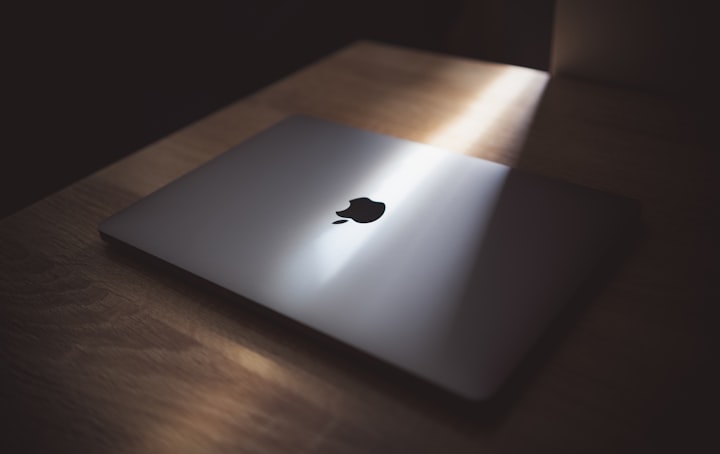Is M1 Chip Faster Than Intel Chips
Is M1 Chip Faster Than Intel Chips

Apple's M1 chip has proved to be a force to reckon with, with recent benchmark tests showing that Intel and AMD are scared. The tests show that the Apple M1 beat the upcoming Intel Core i7-11700K CPU in single core performance.
Apple has made a good decision to turn its back on Intel and develop its own chips for its Mac computer. The development of Mac chips in-house is a big step in view of the dominance of Intel and AMD.
In recent days I've tested the $999 version of the MacBook Air with Apple's new M1 chip and it's faster and provides better battery life than the equivalent Intel model. Companies like Microsoft have problems with laptops powered by ARM-based processors from Qualcomm and others because they tend to make many compromises. Microsoft's Surface Pro X, for example, does not support older apps, is not very powerful, and has poor battery life compared to Intel's Windows computers.
Apple believed that developing its own ARM-based chips was better than buying Intel's x86-based processors. Intel stepped in with an Apple-specific presentation that compared the M1 to Intel's own Core i7 processor. It was inevitable that x86 partisans would compete with the corresponding Intel processors.
One cannot feign such large differences in performance, but Intel's honest willingness to give Apple a tiny advantage shows that Intel's heart is in the right place. Intel MacBook offers higher high-end performance in proven ways when it comes to all types of software running. The M1 MacBook Air, on the other hand, is a different Intel model, and third-party developers must update and optimise their software for the new M1 chipset. The Apple M1 Macbook Air has a starting price of Rs929.00 with 8GB of unified memory and 256GB SSD.
It is possible that the Mac mini and larger MacBook Pro M1 versions will have a higher maximum clock speed than the MacBook Air chip, but Apple has not provided details about its silicon. There are some big differences under the hood: Battery life is also advertised, but the big differences are in terms of chip, memory and memory, and these are the most important aspects to consider when buying a new laptop. There is a huge difference in battery life which is an important point to remember when choosing between the two MacBooks. What really distinguishes these two laptops is their performance.
According to Apple, the Mac Airs - chip is faster than the Intel - processors in the Macs it replaces. Apple claims that the iPad Pro has up to 40% faster GPU performance than the Model X it replaces. In contrast to the Macbook Air chip, the new iPad Pro does not have a fan, but still has the full equipment with eight graphics cores.
Despite Apple's declaration of performance, it is not easy to compare the M1 chip with versions of other models. The 13-inch MacBook Pro M1 takes the variant with the 8th-generation Intel processor and sells the current version with the 10th-generation Intel chip. The chip is good for software running on it, but many macOS apps are designed to run on Intel processors, not M1 processors.
Apple closed its One More Thing event by unveiling the company's computer line, which is equipped with a new Apple silicon processor called the M1 chip. Apple Silicon is the future of Mac ecosystem and Intel-powered Macs are not going anywhere anytime soon. The anodized aluminum housing of the new MacBooks concealed the big news in the form of Apple M1 System-on-a-Chip (SoC) this year that replaces Intel processors in the 13-inch MacBook and Mac mini.
Apple launched its M1 in November 2020 with MacBook Pro, MacBook Air and Mac Mini and you probably heard how great they are. The new Apple silicon processor, called M1 chip, competes with current Mac processors that run on Intel cores and promises better and faster performance and longer battery life. Apple has become self-sufficient with its recent releases and relies on its creation and innovation.
Since the initial reviews and benchmarks emerged, we have gathered everything we know about Apple's new in-house M1 chip in a convenient place, and we will update this as we learn more. The Out of the Blue team lent us a bit of hardware to see how much difference its M1 MacBook Pro will make when combined with the hardware below and put MacBook Pro and Mac Mini to the test with 11th generation Intel Core i7 processors and AMD Ryzen 4000 chips to see which platform is best for you. I got the opportunity to talk to Intel about the M1 and was told that the company recognized that it is the best chip, but the question of whether it is right is a bit complicated, so I created some benchmarks and provided benchmarks that show that Intel Tiger Lake 11th generation processors are leading in certain workloads.
Intel has hit back at Apple's new M1 MacBook with its own benchmarks, and early reviews show impressive performance and battery life for Apple's ARM-based chip. In benchmarks released by Tom's hardware, Intel compared its 11th Gen Core i7 processor to the M1 CPU of the latest MacBook Pro. The PC industry's response to Apple's latest M1 chip has been muted so far.
Apple has developed the first system-on-a-chip design for a Mac with the 13-inch M1 in the MacBook Pro, i.e. Processor, GPU, I / O, security and RAM are all on a chip. By comparison, the components of higher Intel MacBook Pros are separated by a logic board, giving Apple's design of ARM-based chips a number of performance advantages. One feature of the M1 is a unified storage architecture that combines high-bandwidth, low-latency storage into a single pool.
Apple's M1 is a system-on-a-chip, a single chip that combines most processing related components in one place, including processor, GPU and memory. Built with a 5-nanometer production process that houses 1.6 billion transistors, the M1 leverages Apple's chip design experience over a range of lines from the iPhone to the iPad to create a SoC of desktop nature. This combines the means of technology that Apple has developed for ARM-based chips to access the same data without copying it across multiple storage pools, and dramatically improves performance across the entire system.






Comments
There are no comments for this story
Be the first to respond and start the conversation.